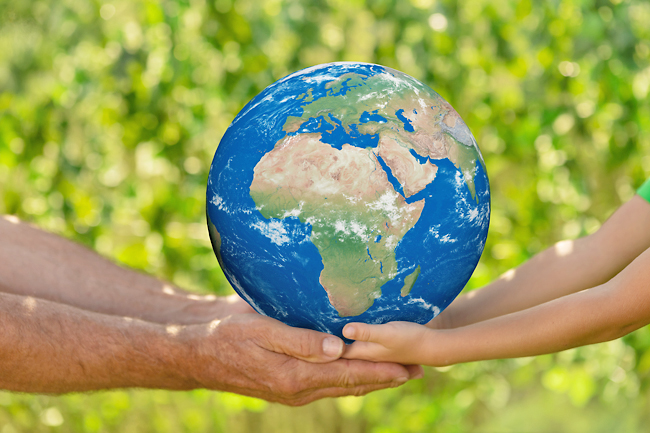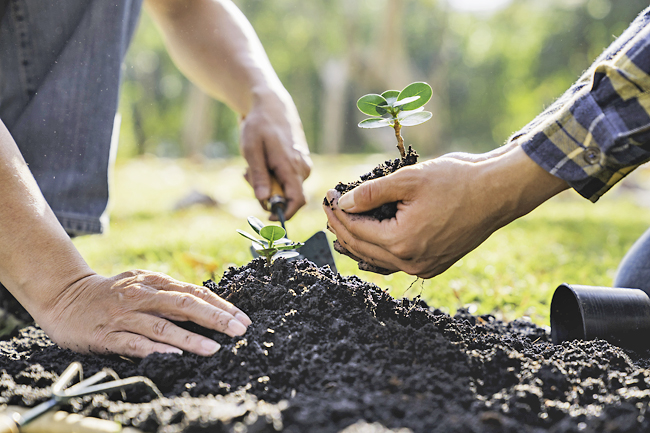We need to realise that Mother Earth is sending an urgent message: Nature is in distress. The signs are all around us – oceans choked with plastic, becoming increasingly acidic; escalating extreme weather events like heatwaves, wildfires and floods affecting millions worldwide.
The causes? They are complex, rooted in climate change, human interference with nature, and crimes that disrupt biodiversity. Deforestation, unsustainable land use, intensified agriculture, livestock production, and the booming illegal wildlife trade are just some of the man-made activities accelerating Earth’s decline.
The time for action is now, we must confront these challenges with a sense of urgency, committing to change and preserving our only home.

NATURE’S CALL
“Humanity is acting like Mother Earth’s delinquent child,” penned United Nations (UN) Secretary-General António Guterres at the beginning of his message in conjunction with International Mother Earth Day celebrated worldwide today.
The secretary-general goes on to talk about how our survival is intrinsically tied to nature. It’s where we source our food, obtain our fresh air, and find our water. However, our actions have wreaked havoc on the environment, contaminating the Earth with pollution, obliterating species and ecosystems, and upsetting the climate through excessive greenhouse gas emissions.
“These actions harm nature, and they harm humanity. We are imperilling food production, polluting our ocean and air, creating a more dangerous, less stable environment, and holding back sustainable development,” he added.
“Together, we must restore harmony with nature, embrace sustainable production and consumption, and protect ourselves from harm – creating jobs, reducing poverty and driving sustainable development as we do so.”
The secretary-general emphasised the need to halt biodiversity loss, curb pollution and reduce greenhouse gas emissions. This entails supporting Indigenous Peoples, local communities, and those most affected by pollution, climate change and biodiversity loss.
It also involves providing climate justice to countries facing severe climate impacts and quickly mobilising funds for climate action, nature protection and sustainable development.
He suggested that nations should develop new climate plans to limit global temperature rise to 1.5 degrees Celsius, guiding national transitions and investments towards sustainability. He also urged the G20 to lead a rapid, fair and well-funded global phase-out of fossil fuels, ending subsidies that harm nature, such as those promoting excessive plastic production.
“Repairing relations with Mother Earth is the mother of all of humanity’s challenges. We must act – and act now – to create a better future for us all.”
ECOLOGICAL RENEWAL
By tackling climate change, reducing our impact on nature and protecting biodiversity, we can slow – and eventually reverse – the devastating damage inflicted on our environment.
The third annual Mother Earth Day during the UN Decade on Ecosystem Restoration underscores a pivotal message – ecosystems are the lifeblood of our planet. These intricate networks of flora and fauna underpin all forms of life, creating the air we breathe, the water we drink and the food we eat.
When ecosystems thrive, so does humanity.
Restoring damaged ecosystems is not just an environmental mission – it’s a critical step toward ending poverty, combating climate change and averting mass extinctions. The task, however, requires a collective effort.
Every person, community and nation must play a role in repairing the Earth’s delicate balance.
The latest UN Climate Change report – the Synthesis Report (SYR) of the IPCC Sixth Assessment Report (AR6), grounded in scientific research, indicates that numerous effective and viable solutions to reduce greenhouse gas emissions and adapt to climate change are already available.

These strategies can be implemented immediately to address the human-caused impacts on our climate.
The SYR of the IPCC AR6 compiles comprehensive insights on climate change, its impacts, risks, and measures for mitigation and adaptation. It integrates key conclusions from the Sixth Assessment Report, encompassing inputs from three Working Groups and three Special Reports.
The Summary for Policymakers (SPM) is divided into three sections: current status and trends, future climate projections with associated risks and short and long-term responses. The report underscores the interconnectedness of climate, ecosystems, biodiversity and human societies, emphasising the importance of diverse knowledge and the relationship between climate adaptation, mitigation, ecosystem health, human well-being and sustainable development.
Its findings are grounded in scientific evidence and use calibrated language to convey confidence levels in the assessment.
Meanwhile, the UN Decade on Ecosystem Restoration is a crucial initiative to restore our natural world during a time of severe environmental crisis.
Although a decade might sound like a substantial stretch of time, scientists highlight that these next ten years are critical for addressing climate change and preventing
the extinction of numerous species.
This period offers a chance to turn the tide, focusing on restoring forests, wetlands, oceans and other ecosystems to ensure a more sustainable future.
By mobilising global efforts, the decade-long campaign aims to bring together governments, organisations, and individuals to take concrete action that will positively impact the planet’s health and biodiversity.
In this crucial decade, the call to action has never been more urgent. By reviving forests, rejuvenating wetlands and protecting biodiversity, we can build a healthier, more sustainable future for all.
Let’s make this Mother Earth Day a turning point – where we commit to healing our planet, one ecosystem at a time. – IZAH AZAHARI










